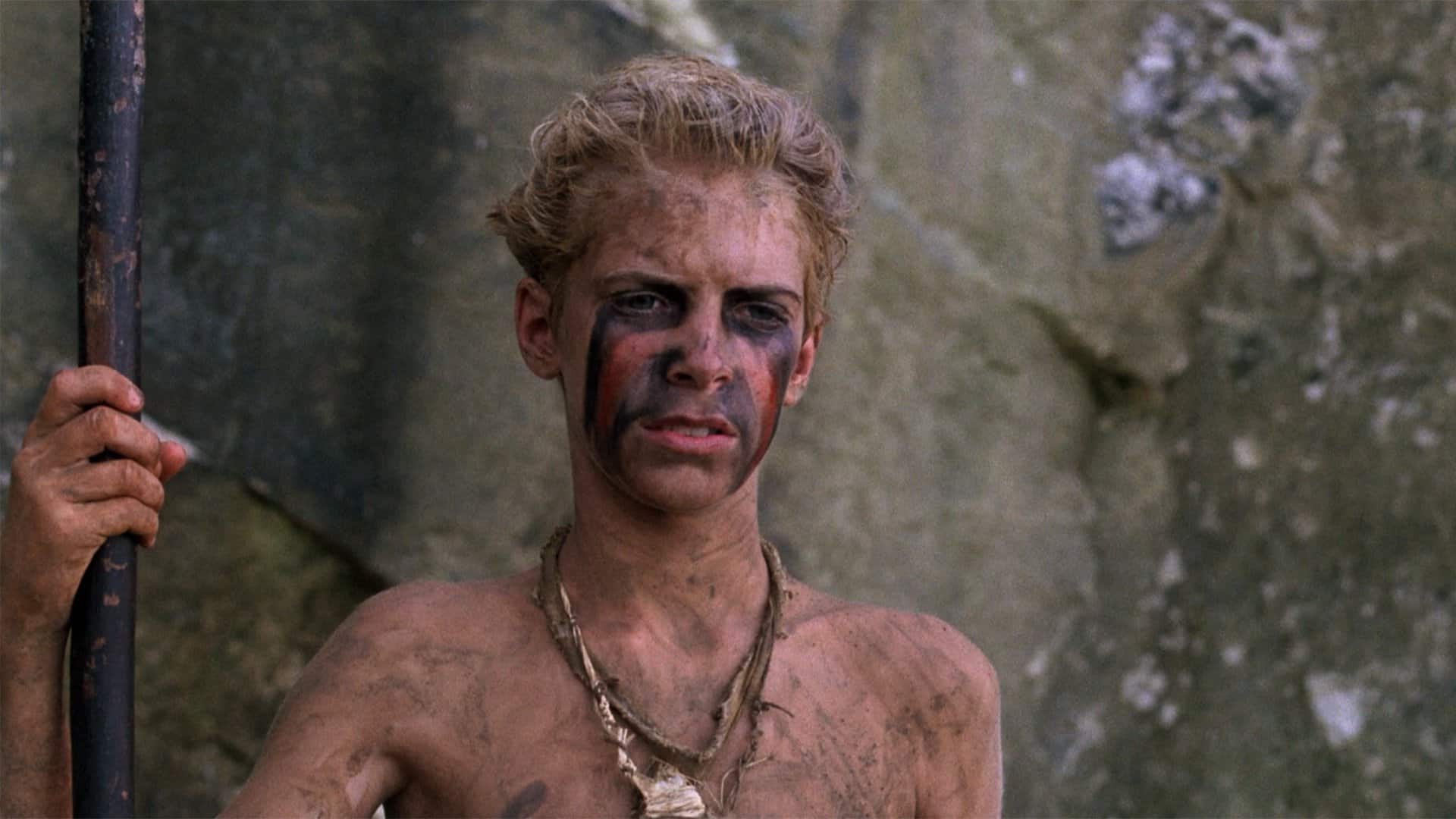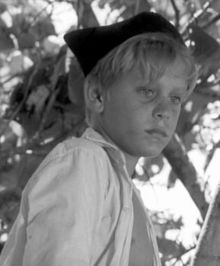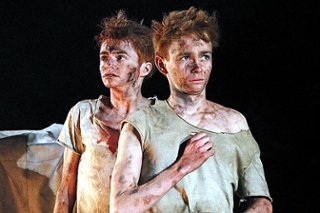“Chaos was the law of nature; order was the dream of man.” (Henry B. Adams) Often times, one may find themselves in a situation where they realize that their life has become full of chaos and destruction. One will soon begin to understand that natural evil within man’s heart outweighs the order within society and inevitably leads to their own destruction.
William Golding’s, Lord of the Flies, tells the story of young boys from England who crash upon an uninhabited island, only to discover that the only threat they will encounter is each other.
Throughout the novel, one learns that chaos really is in fact the law of nature, and order in society is only but a dream. Jack’s reckless behavior throughout the novel, Roger’s psychotic tendencies which inevitably leads to the murder of Piggy, and the mutual fear of a beast, all significantly contribute to the chaotic destruction of society on the island.
Jack’s reckless nature throughout Lord of the Flies significantly contributes to the inevitable downfall of the island. As Ralph, Maurice Simon, and Piggy play in the lagoon, a large pool of water created by the rising tides, they notice a ship slowly passing out at sea. The boys run and further proceed excitedly to a mountaintop, where a fire is always lit to increase their chances of rescue.
As the boys reach the top, Ralph, the leader of the boys, notices that the fire is out. Angrily, the boys spot Jack and his tribe, a group of boys who hunt, primarily for fun. Ralph immediately pinpoints Jack as the one who stopped tending the fire by saying, “There was a ship out there. You said you’d keep the fire going and you let it out!” (Golding, 74)
In this, it is evident that Jack displays his carelessness and immaturity by letting the fire out. Jack soon reveals that the reason he let the fire out was so he could catch pigs without distracting them. After realizing that he is at fault for a missed opportunity of rescue, he proceeds to pick on Piggy, punching him in the face. The force behind the punch knocks Piggy’s glasses off and causes a lens to shatter.
Not only does this display Jack’s foolishness, but also the diminishing of intelligence on the island as Piggy’s glasses are the only thing that successfully lights a fire. Similarly, Jack demonstrates his reckless behavior when he attempts to take the Chief position away from Ralph. When nobody supports Jack, he is brutally humiliated and proceeds to say, “I’m going off by myself.
He can catch his own pigs. Anyone who wants to hunt when I do can come too.” (Golding, 140) Jack compounds his recklessness and foolishness as he acts on an instant and flees from the others. From this, it is clear that Jack does not possess the qualities needed to become a strong leader. As the novel progresses, his action to separate away from the others, causes the boys to later turn on Ralph and results in the separation and continued chaos amongst the boys.
In addition to Jack’s reckless personality, ’s development as a character, from a boy who is initially described as someone who keeps to himself, to somebody who uses murder as a form of order, significantly contributes to the chaos and destruction on the island.
Roger’s psychotic tendencies gradually increase over time, although his evil motives are made clear early on in the novel. Roger is first described as a boy who keeps to himself using avoidance and secrecy. Here, his connection to civilization is still prominent. Henry, a littlun, was tired of playing with the others and ventures down by the sea.
Roger notices Henry and follows him down to the water. Roger then soon begins to realize his urge to harm the little boy: “Roger stooped, picked up a stone, aimed and threw it at Henry- threw it to miss.” (Golding, 64) Golding refers to Roger purposely missing Henry as the taboo of old life.
At this time, Roger is still able to distinguish right from wrong. As the novel progresses, however, he fully embodies his role on the island, revealing mankind’s sadistic nature. During a fight between Ralph and Jack, a fight caused by Jack stealing Piggy’s glasses as there is still one usable lens left, Roger loses all of his temper and high overhead, begins dropping small stones, still with one hand on a lever holding an enormous boulder.
Suddenly, “Roger, with a sense of delirious abandonment, leaned all his weight on the lever.” (Golding, 200) Roger then releases the boulder aimed purposely at Piggy, this time not intending to miss. He immediately crushed Piggy and he flew 40 feet through the air.
Along with Piggy, a conch shell which the boys use to maintain order fell and cracked into hundreds of tiny pieces. These events prelude the inevitable future, as once the conch disappears, order on the island will too, and chaos will reign. With the chaos at the fore, the inevitable destruction of society on the island soon follows.
Along with Roger’s psychotic tendencies, the fear of a beast on the island fuels the creation of chaos, which inevitably leads to the destruction of the island society. All the boys have different opinions on what the beast really is.
Regardless of their opinions, all except for Simon fear it equally. As the only set of twins on the island tend the fire on the mountaintop, they take sight of strange-looking gaps between the rocks. Soon after, the tent they use as shelter falls inwards, displaying a shadow of light towards the trees.
In the midst of confusion, the boys begin to hear sounds of fabric blowing through the wind. Horrified, the boys run back to the main camp and explain what they witnessed: “It was furry. There was something moving behind its head-wings.” (Golding,108) Fear becomes a prominent emotion as the boys explain what they saw.
As they explain, the boys become eager to go hunting for it. The only boy who questions Samneric’s allegation is Simon. He believes that it is just a figment of their imagination. The fear of a beast and the constant bickering as to what exactly the beast maybe is answered as Simon discovers a dead parachutist, entangled in strings creating an impression of a monster when the wind blows.
Just as Simon predicts, he confirms that Samneric is wrong: “He turned the poor broken thing that sat stinking to his side. The beast was harmless and horrible, and the news must reach the others as soon as possible. (Golding, 162) Further, as Simon runs to tell the boys of his discovery, he is mistaken for the beast and is killed by them. This confirms that the fear of the beast contributes to chaos on the island and that evil ultimately emanates from within man’s soul.
In conclusion, Jack’s reckless and immature behavior throughout the novel, Roger’s psychotic tendencies which leads to the destruction of Piggy, and the mutual fear of the beast that ultimately results in the death of Simon; all significantly contribute to the chaotic destruction of society on the island.
One can conclude that the Lord of the Flies identifies the brutish side of human beings and that through the characters and events in his novel, William Golding has taken his audience through man’s dream of order, to the inevitable conclusion that chaos is truly the law of nature.



